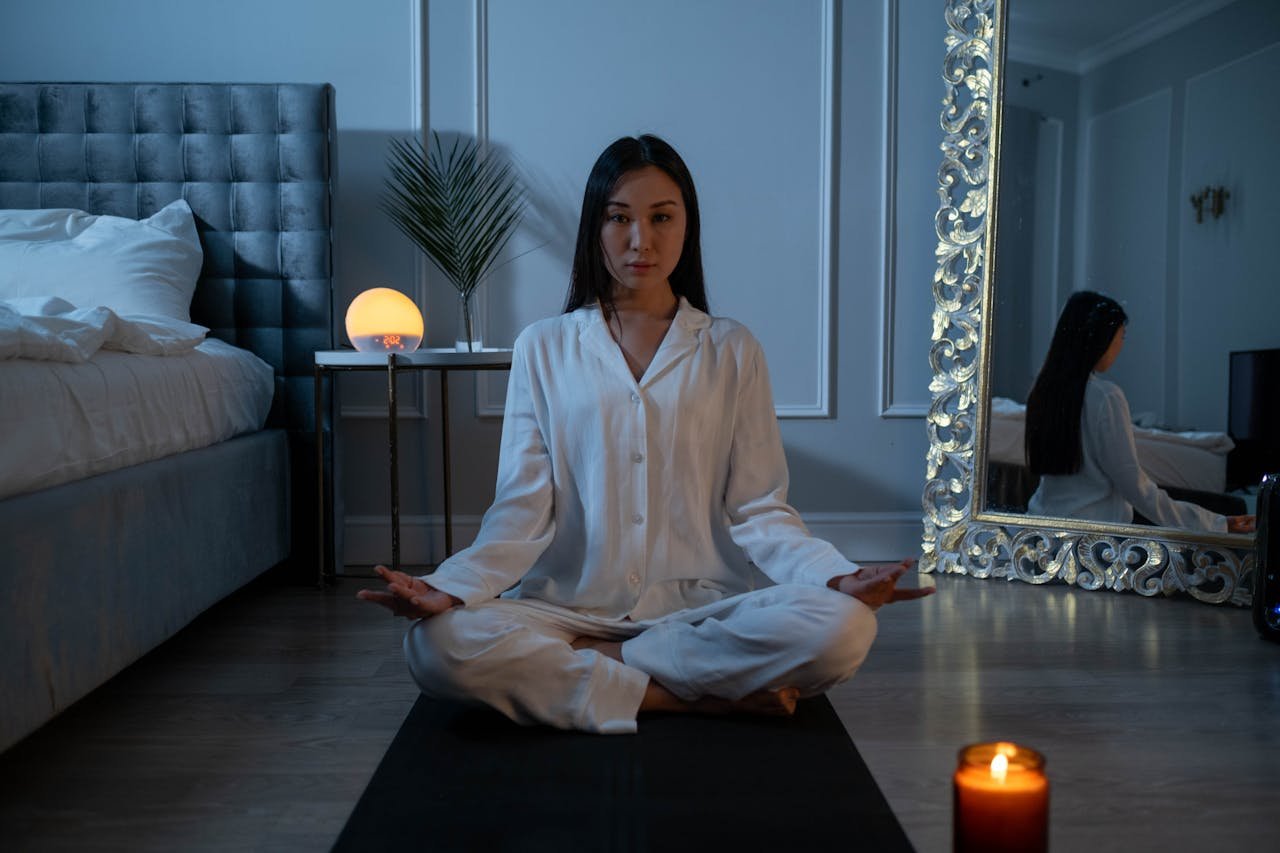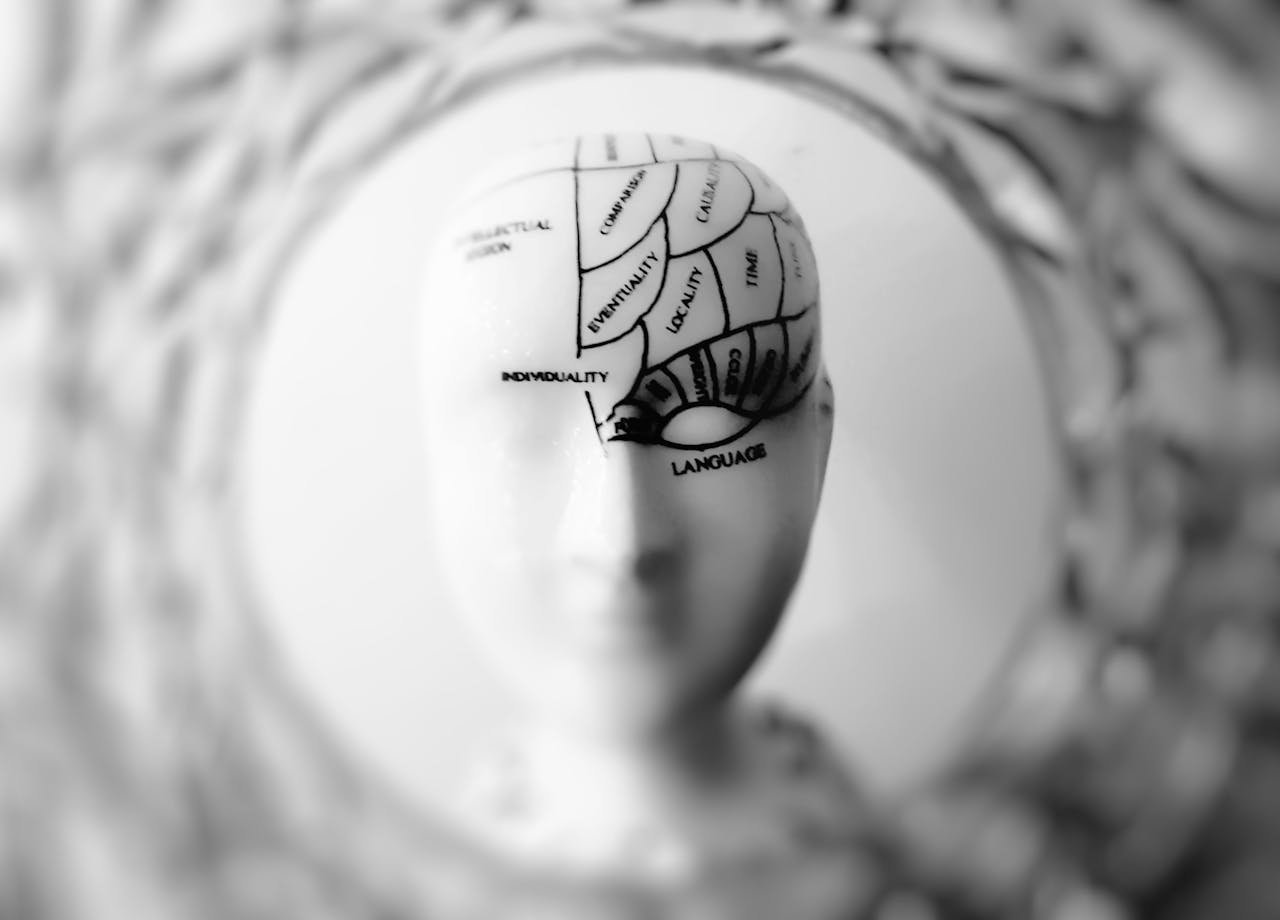In today’s fast-paced world, many people struggle with anxiety, a pervasive and often debilitating condition that can interfere with sleep, productivity, and overall well-being. While there are various strategies for managing anxiety, one approach that has gained widespread attention is bedtime meditation. In this comprehensive article, we will explore the benefits of bedtime meditation for anxiety relief, practical tips for incorporating meditation into your bedtime routine, and how to get started with a meditation practice tailored to your needs.
Understanding Anxiety and Its Impact on Sleep
What is Anxiety?
Anxiety is a natural response to stress or perceived threats, characterized by feelings of worry, fear, and nervousness. While occasional anxiety is a normal part of life, chronic or excessive anxiety can have a profound impact on mental health and quality of life. Anxiety disorders, such as generalized anxiety disorder (GAD), social anxiety disorder, and panic disorder, are among the most common mental health conditions worldwide.
The Connection Between Anxiety and Sleep
Anxiety and sleep are closely intertwined, with each often exacerbating the other. Individuals with anxiety may experience difficulty falling asleep, staying asleep, or experiencing restorative sleep. Chronic sleep disturbances can, in turn, worsen anxiety symptoms, creating a vicious cycle that contributes to overall distress and impairment. Addressing anxiety-related sleep problems is crucial for improving both mental health and sleep quality.
The Benefits of Bedtime Meditation for Anxiety Relief
Promotes Relaxation and Calmness
Bedtime meditation encourages relaxation by activating the body’s relaxation response, which counteracts the stress response associated with anxiety. By focusing attention on the present moment and cultivating a sense of inner peace, meditation can help soothe racing thoughts and promote feelings of calmness and tranquility conducive to sleep.
Reduces Physiological Arousal
Anxiety is often accompanied by physiological arousal, including increased heart rate, muscle tension, and shallow breathing. Bedtime meditation techniques such as deep breathing, progressive muscle relaxation, and body scan meditation can help reduce these physiological symptoms, signaling to the body that it is safe to relax and unwind.
Enhances Mind-Body Awareness
Mindfulness meditation, a core component of bedtime meditation, involves bringing nonjudgmental awareness to the sensations of the body, thoughts, and emotions. By cultivating greater mind-body awareness, individuals can become more attuned to the early signs of anxiety and develop skills for managing distressing symptoms before they escalate.
Improves Sleep Quality
Numerous studies have demonstrated the beneficial effects of meditation on sleep quality, including reduced sleep latency, increased sleep efficiency, and enhanced subjective sleep quality. By promoting relaxation, reducing arousal, and calming the mind, bedtime meditation can help individuals fall asleep more easily and experience more restful sleep throughout the night.
Practical Tips for Incorporating Bedtime Meditation Into Your Routine
Create a Relaxing Environment
Designate a quiet, comfortable space for meditation free from distractions such as electronic devices, bright lights, or noisy disruptions. Consider dimming the lights, playing soft music or nature sounds, and using aromatherapy with calming scents such as lavender or chamomile to enhance relaxation.
Choose a Meditation Technique
Experiment with different meditation techniques to find what works best for you. Some popular techniques for bedtime meditation include guided imagery, progressive muscle relaxation, mindfulness meditation, and loving-kindness meditation. Start with simple practices and gradually explore more advanced techniques as you become more comfortable with meditation.
Set Aside Time for Meditation
Schedule dedicated time for bedtime meditation each night, ideally 10 to 20 minutes before bedtime. Consistency is key, so aim to practice meditation at the same time each night to establish a regular routine. Avoid engaging in stimulating activities or consuming caffeine or electronics in the hour leading up to bedtime to promote relaxation and prepare your mind for sleep.
Focus on the Breath
One of the simplest and most effective meditation techniques for anxiety relief is deep breathing. Practice diaphragmatic breathing by inhaling deeply through the nose, allowing the abdomen to expand fully, and exhaling slowly through the mouth, releasing tension with each breath. Use the breath as an anchor for your attention, gently guiding your focus back to the present moment whenever your mind wanders.
Cultivate Gratitude and Positivity
Incorporate elements of gratitude and positivity into your bedtime meditation practice by reflecting on moments of joy, love, and gratitude from your day. Focus on the things you are thankful for and cultivate feelings of appreciation and contentment. By shifting your focus toward the positive aspects of your life, you can counteract negative thought patterns and promote emotional well-being.
Getting Started with Bedtime Meditation
Step 1: Find a Comfortable Position
Find a comfortable seated or reclined position for meditation, ensuring that your spine is straight and your body is relaxed. You can sit cross-legged on the floor, on a cushion or yoga mat, or in a supportive chair with your feet flat on the ground. Close your eyes or soften your gaze, allowing your eyelids to become heavy and relaxed.
Step 2: Settle Into the Present Moment
Take a few moments to settle into the present moment, bringing awareness to the sensations of your body, the rhythm of your breath, and the sounds of your environment. Notice any areas of tension or discomfort in your body and consciously release them with each exhalation. Allow yourself to fully arrive in the here and now, letting go of any worries or distractions from the day.
Step 3: Focus on the Breath
Shift your attention to the breath, observing the natural flow of inhalation and exhalation without trying to control or
manipulate it. Notice the sensation of the breath as it enters and leaves your body, feeling the rise and fall of your chest or the expansion and contraction of your abdomen with each breath cycle. If your mind begins to wander, gently guide your focus back to the breath, using it as an anchor for your attention.
Step 4: Cultivate Mindfulness and Relaxation
Practice mindfulness by bringing nonjudgmental awareness to your thoughts, emotions, and bodily sensations as they arise. Notice any thoughts or feelings that arise during meditation, allowing them to come and go without attachment or resistance. If you notice tension or discomfort in any part of your body, direct your attention to that area and consciously relax it with each breath.
Step 5: Embrace Self-Compassion
Cultivate feelings of kindness and compassion toward yourself, acknowledging that it’s okay to experience stress or anxiety from time to time. Offer yourself words of encouragement and support, recognizing your inherent worth and resilience. As you continue to practice bedtime meditation, allow yourself to be gentle and patient with yourself, knowing that healing takes time and effort.
Conclusion
Bedtime meditation offers a gentle yet powerful approach to relieving anxiety and promoting restful sleep. By incorporating relaxation techniques, mindfulness practices, and positive affirmations into your bedtime routine, you can create a tranquil and nurturing environment conducive to deep relaxation and rejuvenation. Whether you struggle with occasional bouts of anxiety or chronic stress, bedtime meditation can serve as a valuable tool for restoring balance, calm, and well-being to your mind, body, and spirit.
Bedtime meditation for anxiety FAQs
How long should I meditate before bedtime to see results?
The duration of bedtime meditation can vary depending on individual preferences and schedules. Aim to meditate for at least 10 to 20 minutes each night to experience the benefits of relaxation and anxiety relief. However, even a few minutes of meditation can be beneficial for promoting relaxation and preparing the mind for sleep.
Can bedtime meditation help with other sleep-related issues besides anxiety?
Yes, bedtime meditation can be beneficial for a variety of sleep-related issues, including insomnia, restless leg syndrome, and sleep disturbances caused by stress or trauma. By promoting relaxation, calming the mind, and reducing physiological arousal, meditation can help improve overall sleep quality and promote restorative sleep.
Is it okay to fall asleep during bedtime meditation?
Yes, it’s perfectly normal to fall asleep during bedtime meditation, especially if you struggle with insomnia or sleep disturbances. Falling asleep during meditation indicates that your body and mind are in a deeply relaxed state, which is conducive to restful sleep. If you consistently fall asleep during meditation and have difficulty staying awake, consider practicing meditation earlier in the evening or choosing a more stimulating posture to maintain alertness.
Can I use guided meditation apps or recordings for bedtime meditation?
Yes, guided meditation apps or recordings can be helpful for bedtime meditation, especially for beginners or individuals who prefer structured guidance. Look for meditation apps or recordings specifically designed for relaxation, anxiety relief, or sleep enhancement, and choose ones that resonate with your preferences and goals. Experiment with different guided meditations to find what works best for you and enhances your bedtime routine.
Are there any contraindications for bedtime meditation?
While bedtime meditation is generally safe and beneficial for most people, it may not be suitable for individuals with certain medical or psychological conditions. If you have a history of severe mental health issues, such as psychosis or bipolar disorder, or if you’re taking medications that affect your sleep or cognitive function, consult with a healthcare professional before starting a bedtime meditation practice. Additionally, if you experience discomfort or worsening symptoms during meditation, discontinue the practice and seek guidance from a qualified healthcare provider.













